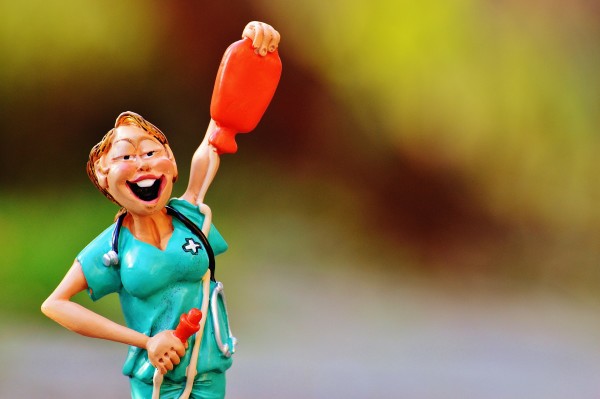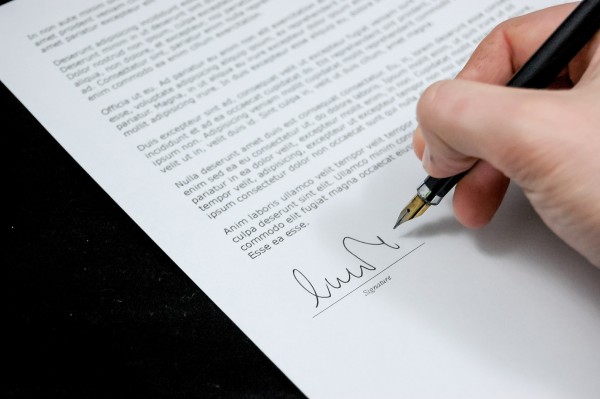
Collecting pee is a dirty job; one that few can stand and even fewer wish to admit they make their living doing.
As can be imagined, there aren’t a lot of people who spend their lives dreaming about collecting specimens for drug testing. Of course, doctors and nurses can and will do it, but that’s not their specialty. Their specialty is helping people and saving lives, just like a police officer’s main job is keeping the peace and protecting the public from bad guys, but he’ll pull some traffic directing duty when he’s asked to.
The problem with this model isn’t that the person doing the “side job” isn’t capable of doing it, it’s that the task they’re doing isn’t their main focus- they don’t care as much about it as they do about their main goals: saving lives, curing diseases, protecting the public, catching bank robbers, etc. You wouldn’t hire a carpet cleaner to clean your ducts or a chimney sweep to clean your grill. You want the best your money can buy.

Imagine this: You’re an employer and you’ve wisely set up your business as a Drug Free Workplace and you have a drug testing program. Maybe you perform random drug screens, too. You’ve got it all set up so that when Amanda in your office needs a drug test (she’s a new hire, but two weeks ago you also sent Joey, who had an accident in the warehouse and half the crew that were picked for a random drug test) will go to the nearest clinic/ doc-in-the-box/ hospital down the road for testing and then return right back to the shop after their test. It’s the perfect setup. Did I mention it’s the cheapest, too? yeah, you got a quote from this place called Workright that a few other businesses use and also from the LabCorp facility in the next town over. Both of them were a little more expensive so you opted for the cheap, close doctor’s office. Savin’ money and savin’ time- Hot dawg!
But wait a minute! How do you know what you’re paying for? Are you paying that hospital for a negative drug screen? Are you paying the doc-in-the-box to find out if there’s any drugs in this person’s system? Are you paying the nurse’s assistant to physically test the specimen or send it off to the lab? Are you paying the physician’s assistant to milk a cow while yodeling the Danish Anthem with an Australian accent? What are you paying them for, anyway!?
Well, you’re about to find out. Drug testing is a tricky business and, as we’ve already established, not a lot of people dream of being “pee-collectors”. Just like in other industries, there’s a lot of people who are capable of doing the job, but who may not know all the ins and outs and upside downs of the job they’re performing. Because there are no certifications for drug testing collectors, you have to educate yourself to find the best person for the job you’re hiring out.

The most common testing in the workplace is a five or ten panel test. Most employers, not to mention some collectors, don’t even know what these tests are composed of, what substances are to be identified, and how the testing is done. There are several steps in the process of collecting and analyzing a drug test:
- Collect a Specimen
- Perform the initial test of the specimen (most people would call this an instant test)
- Send specimen to the lab (when required)
- Confirmation of test results
- Transmittal of test results
- Medical Review of any positive confirmed lab test- Recommended, but not required by GA law (for non-mandated employers)
Every part of this process can be analyzed and optimized for efficiency and accuracy to limit liability, but the most subjective part of the testing process is the collection. If the specimen collected is adulterated (i.e. screwed around with) or substituted then accurate testing can’t occur.
For instance, a collector was performing on-site testing services for a client. One of the very last donors to present handed her a warm-but-not-quite-right specimen. It wasn’t quite in the temperature range, but it looked good, smelled (yes, smelled) alright, and was otherwise an okay sample. Should she accept the sample and move ahead with the testing? If you said “NO!”, you’re right. She didn’t accept the specimen, asked for another, and the donor tested non-negative for cocaine. Before he gave his second specimen, while sitting with the collector, he admitted to having his daughter urinate in a cup that he then transferred to a condom to hide in his pants to trick the collector. Out of curiosity, the collector asked him how he hid it, to which he replied “I tied a string around the condom, then tied it around the waistband of my boxers so that you couldn’t see.” Who would have known!? A good collector, that’s who.

Does your collection site have trained collectors? There is no standard certification for collection staff. You could walk into a clinic and apply as a specimen collector. Mr. Jones could walk into a clinic and apply as a specimen collector. Channing Tatum or Jessica Simpson or Steve Harvey could walk into a clinic and apply as a specimen collector. They can be ANYONE. Are they properly trained regarding procedures and what specimens should look like? Do they carefully observe behavior and actions of the testing candidate to prevent substituting a ‘fake’ specimen for testing?
Here’s a few more “sticky” situations encountered over the years. See if you can determine the proper course of action for each:
Scenario #1 A donor presents the employers authorization to test and a picture ID. The collector hands the candidate a specimen cup and directs the candidate into a restroom telling her/him to provide the specimen in a certain amount. The candidate exits the restroom with a specimen and the collector accepts it for testing. Forms are completed and the candidate takes the result or Lab Form and leaves the facility.
Question? Was the temperature checked and within what range is a specimen accepted? Could the candidate have brought in a specimen maybe even using a heating device secreted on his/her person? Was the specimen mostly water as the candidate engaged in a ‘system flush’ in an attempt to defeat the testing process by dilution? Was the specimen typical or of an unusual appearance, odor? Was the candidate allowed to take his or her wallet purse into the restroom? Were the pockets and other clothing checked for contraband?
Scenario #2 A donor presents for testing submitting the authorization and picture ID. The collector requires the candidate to empty his/her pockets and requires purses and briefcases left in the collection area. Jackets and other such outer clothing is removed. The collector checks to make sure there are no outward signs of a specimen on the candidate’s person short of an actual search. The candidate is instructed on submitting a specimen and directed into the restroom. The candidate submits a specimen but it’s out of temperature range, 95 degrees. What should the collector do? Accept the specimen anyway? Allow the candidate to submit another specimen? Require an a second submitted specimen under observed conditions? Call the employer for direction? Refuse the specimen and as is allowed by OCGA (GA Law) make the test result a substituted specimen/refusal therefore a positive?
You tell us. Your policy tells us. You as the employer dictate what should happen next. Do you know? If you don’t, do you trust the people you’ve hired to make the right call for you? These scenarios are just a few that the employer should be considering to ensure they’re getting what they pay for in a testing facility. It’s not as black and white as you think, so make sure you research your specific needs, educate yourself, and find the best people to trust as your advisers.

Leave a Reply